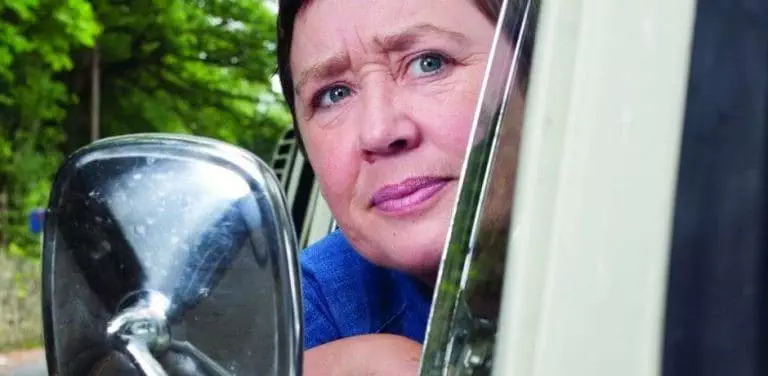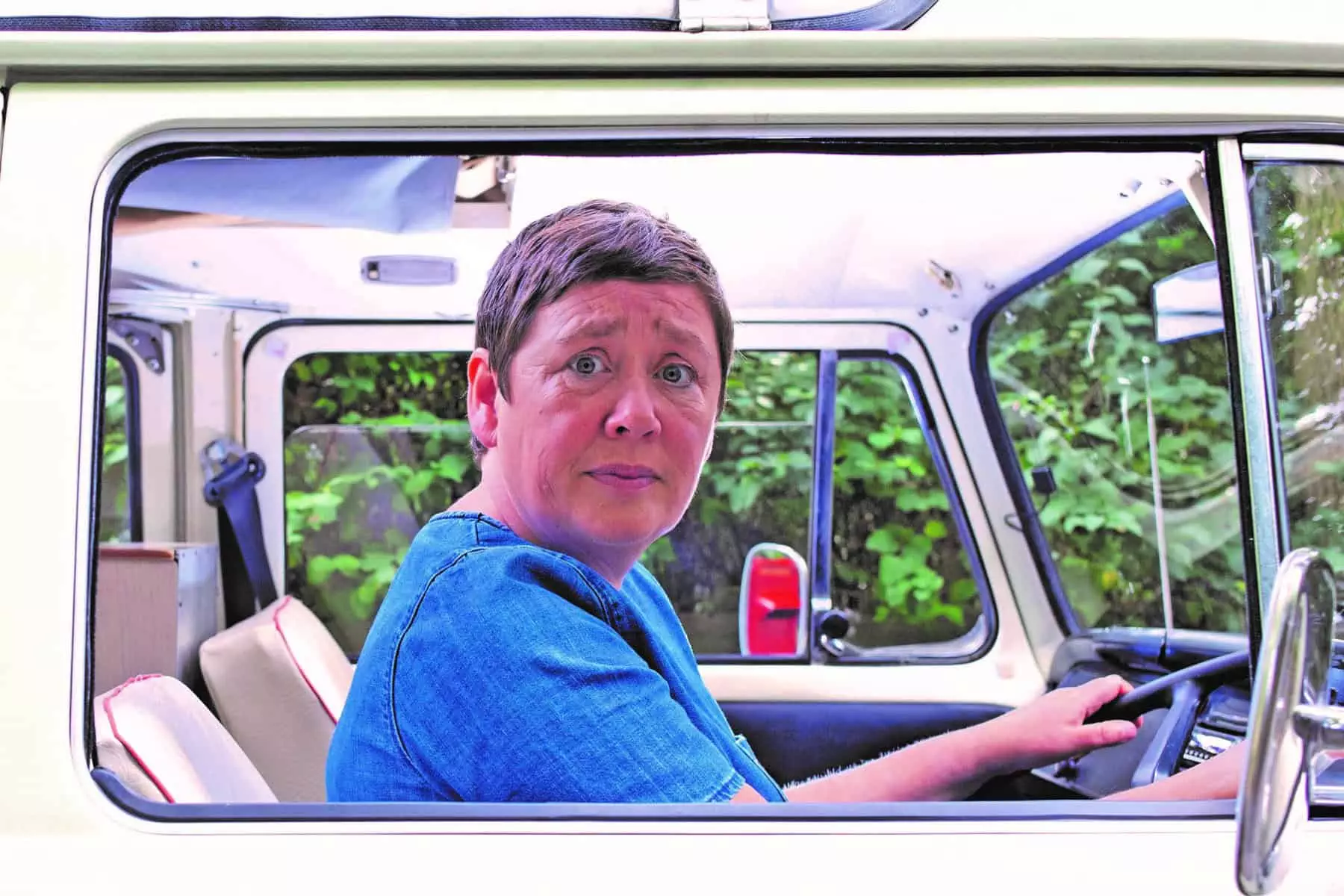
The conventional approach to reviewing theatre is that the review should appear the morning after the reviewer has seen the play. I admit, when I took my seat at Slung Low for Debs Gatenby’s one-woman play A Place Called Happiness, I had every intention of being conventional. But then Debs Gatenby isn’t conventional. She is anything but conventional. In fact, she is weird. I know she is weird because she told me, and she knows that she is weird because people have been telling her she is weird for a very long time.
She is not alone in being weird, some of the most celebrated people have the same experience of being called weird, and just like Debs it appears to be a badge that they wear with if not pride then at least honesty, because what I am watching is probably the most honest portrayal of personal emotions I think I have seen on a stage. If I am as honest as Debs I must admit that the reason why I have broken with convention is that it has taken me quite a while to assimilate the impact that A Place Called Happiness has had on me.
In her previous work, Hi Anxiety Debs looked at how mental health affected both her and her mother, in a sort of two for the price of one deal. In A Place Called Happiness Debs shares the next stage in her relationship with mental illness.
Just think, a few years ago we wouldn’t be talking about mental health, it was a bit of a taboo subject. It’s different now of course, well it’s so common, one in four of us either have had, have, or will have a mental health issue at any one time.
Oh! Correction! Don’t worry the statistic is correct, I checked. I mean the common bit. That isn’t correct. Well not any more, not since Prince Harry and Prince William started talking their own mental health issues, they even launched a charity Heads Together to get everyone talking about mental health. Nowadays you’re the weird one if you haven’t got a mental health story you can talk about.
Sadly, a whole industry of counsellors and support organisations has developed to service the needs of people who are living as the one in four. Which is weird, because no one really knows how it happens? Why some people are affected, and others are not? Or, how you get rid of it. We do know that talking helps, but unfortunately many people lack a friend that they can talk to.
Many people who are living with mental illnesses are expert at disguising their symptoms and appearing to be perfectly healthy. That is what you do when you have a mental illness, you live with it. It just becomes normal live. When you are unhappy with normal you start to imagine that there must be a more special place somewhere in which you will be happy. Every person who has experienced mental illness needs at some stage to stop thinking about that special place and start moving towards it.
A Place Called Happiness is the story of Debs very personal journey, from the very highest highs to the very lowest of the lows until she finally arrives as her place called happiness.
Watching Debs recount her journey and what she did as she hit each obstacle I am reminded of the people I have met with mental illnesses who just wouldn’t address those challenges. There were those who seemed to enjoy being the one in four and the attention of mental health care professionals. Some wore their medication like a medal, boasting to other patients about how big the dosage of their prescription of anti-depressants was. Others were simply unhappy and instead of taking steps to get happy, they blamed their unhappiness on something in their past or anything else that they can not change.
Dr Bonnie Burstow, from the University of Toronto has controversially launched an anti-psychiatry scholarship, and has called for the abolition of psychiatry, because she believes that mental illnesses do not exist in the same way as physical illnesses.
What we describe as mental illnesses are in fact, suggests Dr Burstow, just less effective ways of dealing with reality, so treating them as an illness is unlikely to work. What is perhaps needed is better education.
In A Place Called Happiness we share a journey in which Debs learns how to deal with the reality of life better. Never perfectly, but that might not be necessary. But I do believe that she portrays the journey successfully without limiting her emotional input and that as a result she is probably living successfully as well.
It would be unfair to you to tell you everything about this play. It is better that you experience it for yourself, and perhaps see how it changes your perspective of the world, of other people and most importantly of yourself. Unfortunately, that will not be possible until Debs decides to tour again. Slung Low was the last show of the spring 2017 tour.
Looking back one thing I do regret about A Place Called Happiness, I wish I had accepted the invitation Debs extended at the end of the performance, but then that was a ‘Once in a Lifetime’ opportunity and as they say you only regret what you don’t do.
During the day Michael Millward is a HR professional.
